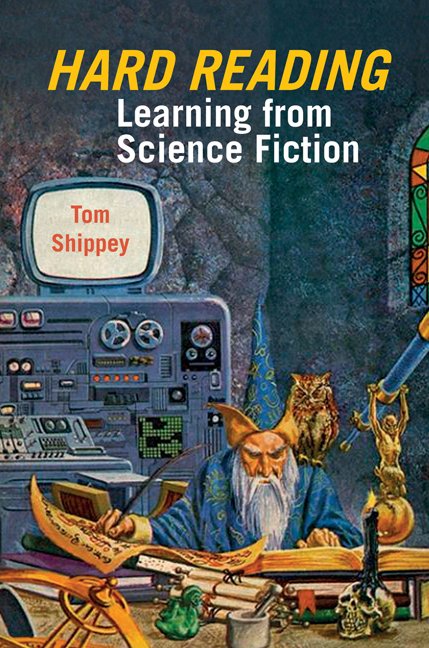Book contents
- Frontmatter
- Dedication
- Contents
- List of Figures
- Note on References
- A Personal Preface
- What SF Is
- SF and Change
- 4 Getting Serious with the Fans
- 5 Getting to Grips with the Issue of Cultures …
- 6 … And Not Fudging the Issue!
- 7 SF Authors Really Mean what they Say
- 8 A Revealing Failure by the Critics
- 9 A Glimpse of Structuralist Possibility
- 10 Serious Issues, Serious Traumas, Emotional Depth
- SF and Politics
- References
- Index
8 - A Revealing Failure by the Critics
from SF and Change
- Frontmatter
- Dedication
- Contents
- List of Figures
- Note on References
- A Personal Preface
- What SF Is
- SF and Change
- 4 Getting Serious with the Fans
- 5 Getting to Grips with the Issue of Cultures …
- 6 … And Not Fudging the Issue!
- 7 SF Authors Really Mean what they Say
- 8 A Revealing Failure by the Critics
- 9 A Glimpse of Structuralist Possibility
- 10 Serious Issues, Serious Traumas, Emotional Depth
- SF and Politics
- References
- Index
Summary
I ended the preceding piece with a strong feeling that there was more to be said about the sheer difficulty of reading sf in general, and ‘alternate history’ in particular, and Kingsley Amis's two sf novels gave me the opportunity to draw this out. Just for once, sf got reviewed by the mainstream, and the results – it took me a long time to trace them all – were abysmal. The mainstream reviewers very nearly literally didn't know where to start. I should say that I have been a very steady writer of reviews for more than thirty years, ever since I was signed up by the Literary Editor of the Guardian in the urinal after delivering Kingsley Amis's award-presentation speech, as mentioned above (p. 131). I know that reviews for academic journals and reviews for the daily and weekly newspapers are very different animals. For the former, you have years to work in, and often some idea of what professional opinion has started to say. With the latter, you have a deadline measured in days from book arriving to copy being printed; you often know nothing about work or author; you may have several to review at once; there may be an editorial agenda you have to keep an eye on, and – this is the big difference – however dull the book is, you have to make the review sound interesting! People are paying money to read this! So I can easily sympathise with reviewers getting things wrong, staging a controversy, barking up the wrong tree, etc.; it happens all the time. But the responses to Kingers's sf had an extra element of utter and often angry bewilderment, which I thought told us something about sf as well.
There is a clue in one of the great authorial put-downs, which I did not have the good fortune to hear, but which I have been told about. Apparently, some critic, or maybe a creative-writing teacher, was handing out the usual spiel about how your story had to have characters, how they had to be alive, how they had to come alive from the first moment, etc. At which a sepulchral voice from the audience – Tom Disch's – boomed out the first words of Dickens's famous ‘A Christmas Carol’: ‘Marley was dead, stone-dead. To begin with’.
- Type
- Chapter
- Information
- Hard Reading: Learning from Science Fiction , pp. 141 - 159Publisher: Liverpool University PressPrint publication year: 2016



